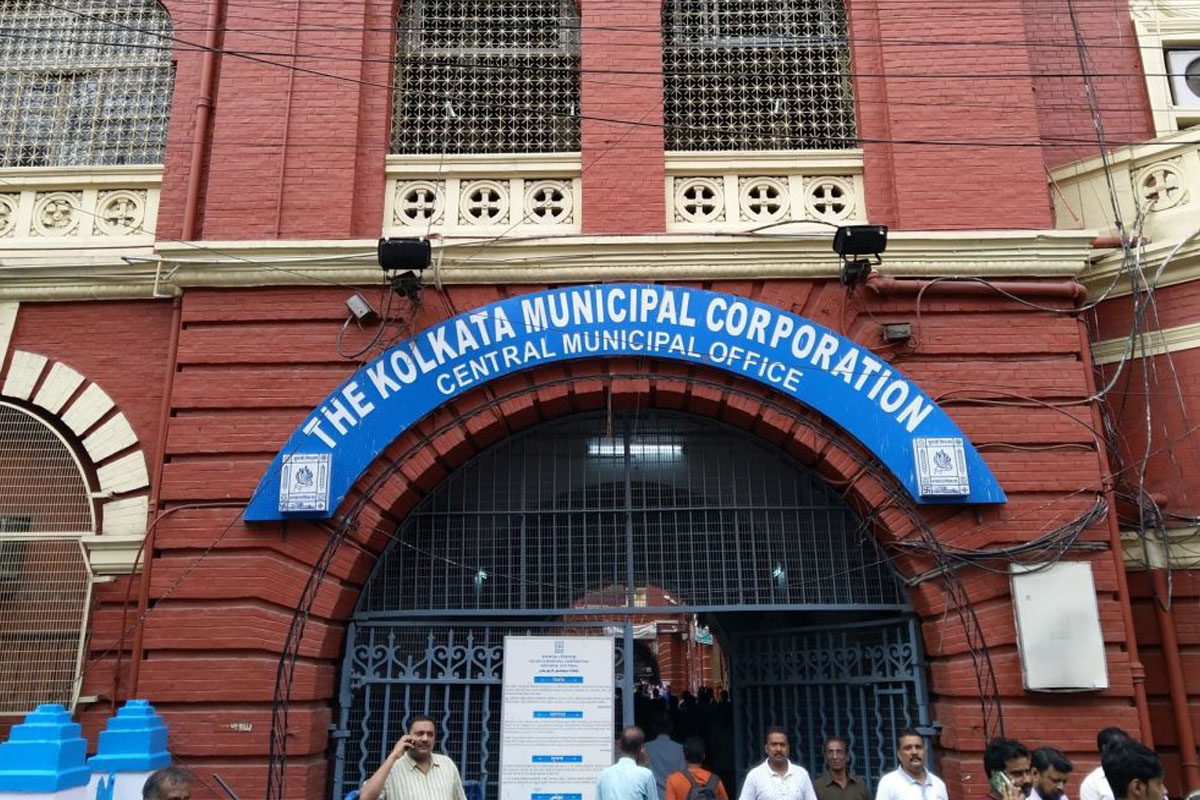KMC proposal to heritage commission for gradation of buildings
The Kolkata Municipal Corporation is considering sending a proposal to the West Bengal Heritage Commission for revision in the formula of gradation of heritage structures.

Kolkata Municipal Corporation (file photo)
With dengue scare increasing with every passing week, the Kolkata Municipal is exploring options to reach out to vulnerable larvae breeding grounds in inaccessible areas of the city.
The civic body has adopted the method of drone vigilance to identify possible pockets of dengue mosquito breeding.
Advertisement
For preventing larvae breeding in inaccessible pockets that are out of reach of the civic body’s workers of the vector control department, the KMC is using a larvicide named ‘temephos EC.’ The lower side of the drones used by the KMC is fitted with a container carrying the larvicide.
Advertisement
“The chemical, however, is strictly to be used by government organizations only as it needs trained technical hands. Ordinary citizens cannot have access to it,” pointed out the chief ento- mologist of KMC, Debashish Biswas.
After conducting inspections at several organizations like Jadavpur University, Kamardanga, Calcutta Medical College, Barnaparichay Mall last week, the deputy mayor of KMC, Atin Ghosh, is conducting another round of similar visits this week. The deputy mayor yesterday, visited Krishna Glass Factory spotting several vulnerable pockets in the premises that are inaccessible. A similar visit was paid by the KMC officials at the godown of the state food supply and essential commodities department. According to sources in KMC, the civic body had earlier sent a notice to the concerned authorities of the godown.
“The authorities have started working on measures that need to be taken to curb mosquito breeding,” said official sources.
“However, there were some inaccessible areas where chemical spraying by drone needed to be done,” added the official.
The deputy mayor also visited the Bikramgarh Jheel today. As informed by sources, the edges of the water body are littered with plastic cups, plates and similar articles where if rain water gets accumulated, could bring threats of larvae breeding.
The KMC carried out antilarvae chemical spraying using drones at the edges of Bikramgarh Jheel and the food department’s godown today. The civic body is also carrying out a sensitization programme near the water body to make the local residents allegedly involved in littering the edges, aware of the threats of larvae breeding and dengue.
Panchayat dept plans on dengue prevention
Pradip Mazumdar, state minister for panchayat and rural development urged the Panchayats to take proper action to combat the outbreak of dengue in rural areas.
He urged the rural bodies to take assistance from the engineering institutes and prepare blueprints to destroy the mosquito breeding grounds. He inaugurated a symposium organized by the panchayat and rural development department at the Biswa Bangla Convention Centre this morning.
The meeting was attended by the district panchayat and rural development officials looking after public health programmes and one joint BDO from each block.
The objective of the symposium was to highlight the special IT initiatives, resource management, financial man agement, e-tender and panchayat management and other programmes like MSAP mainly targeted for rural pensioners and vector borne disease control programmes, especially prevention and management of dengue were discussed.
Mr Mazumdar urged the officials to intensify their vigil and take action against the mosquito breeding ground like stagnant water. He urged the panchayats to take assistance from the engineering institutes and make plans to combat spread of the disease.
Becharam Manna, state minister for panchayat and rural development department urged the officials to monitor solid and liquid waste management regularly. He urged the officials to involve the communities and make comprehensive planning to combat the disease.
Advertisement